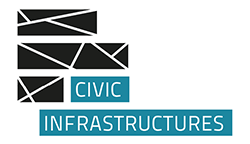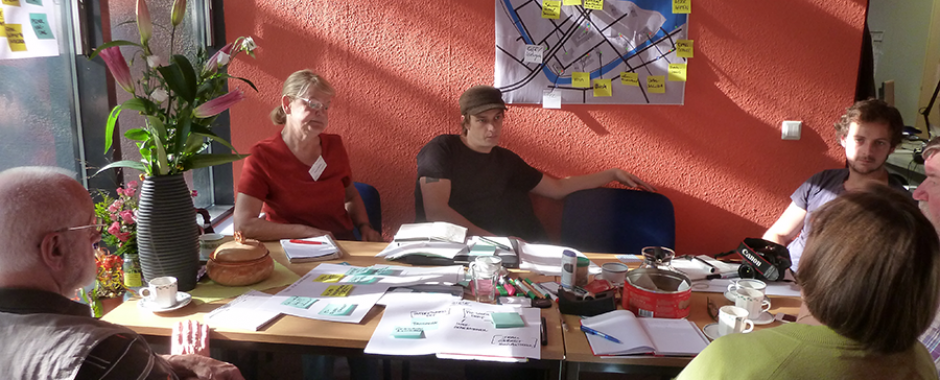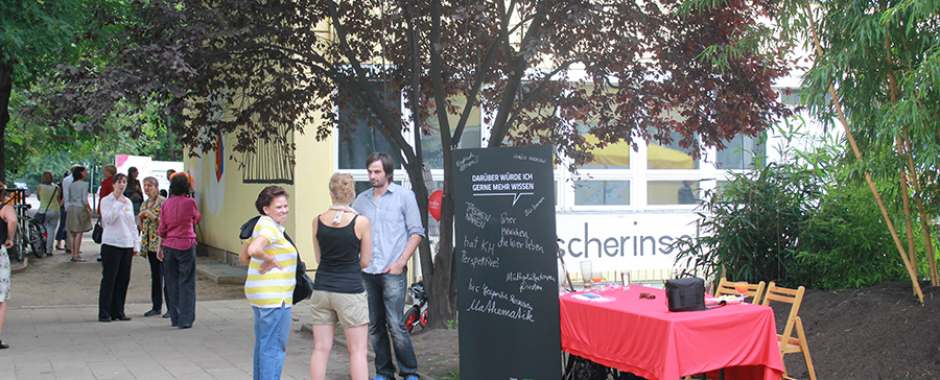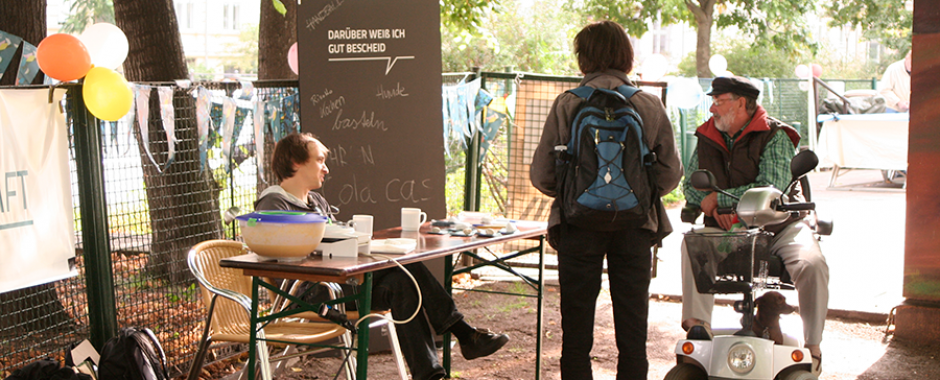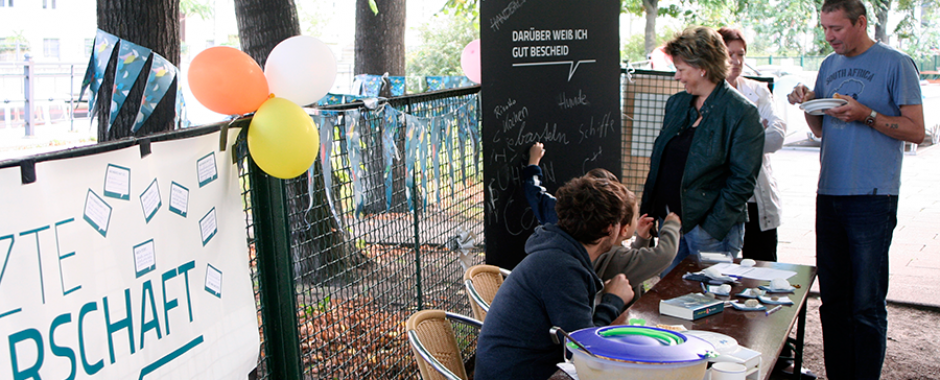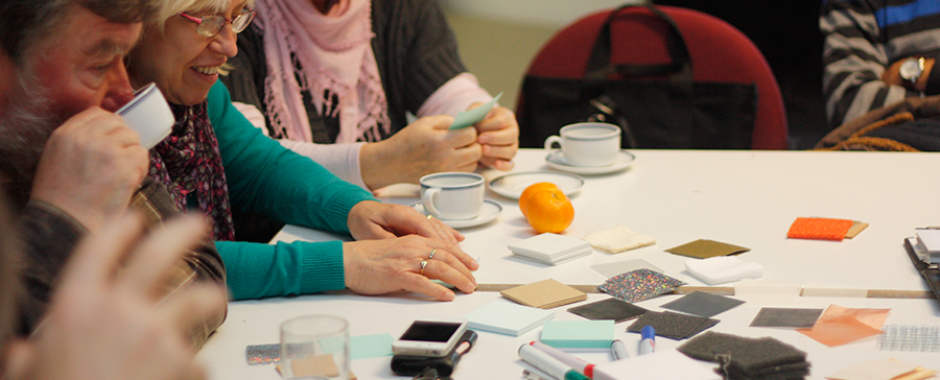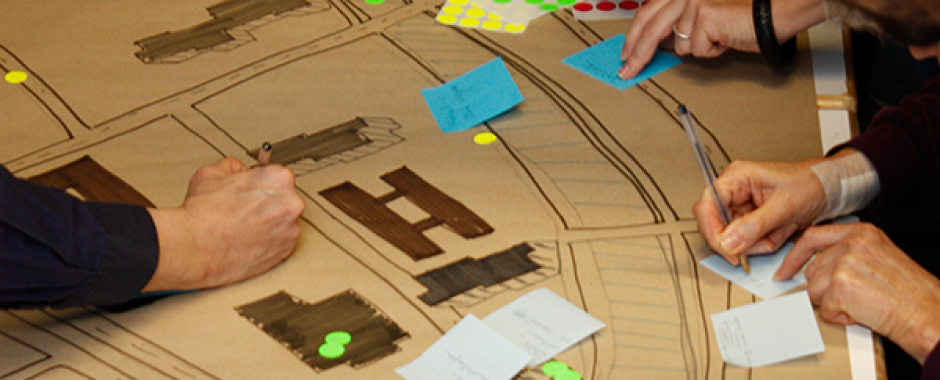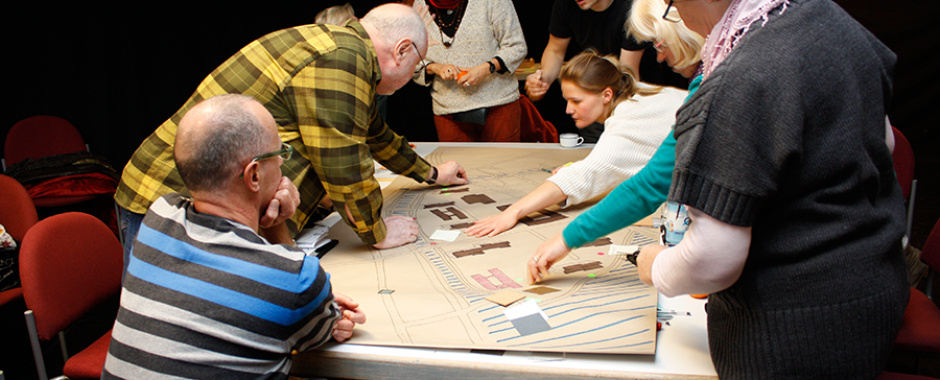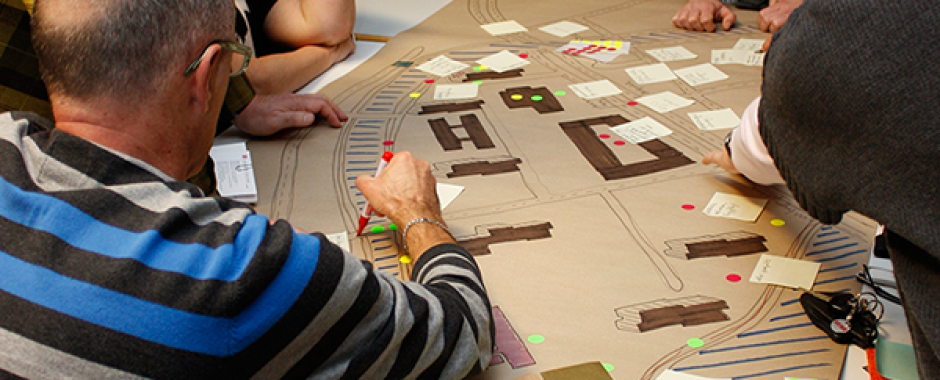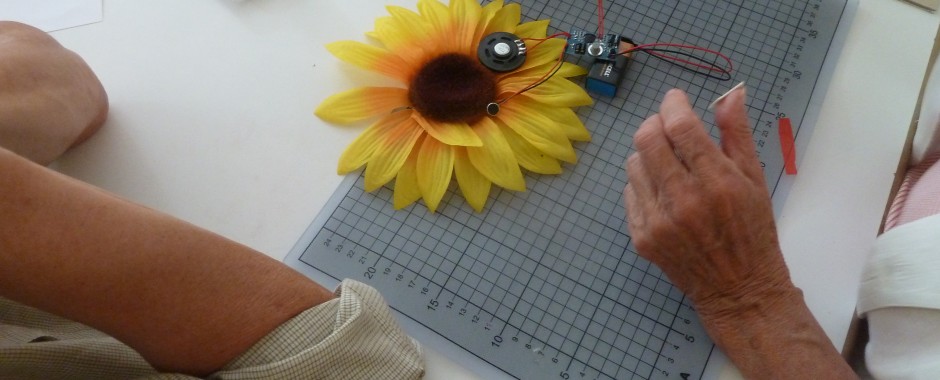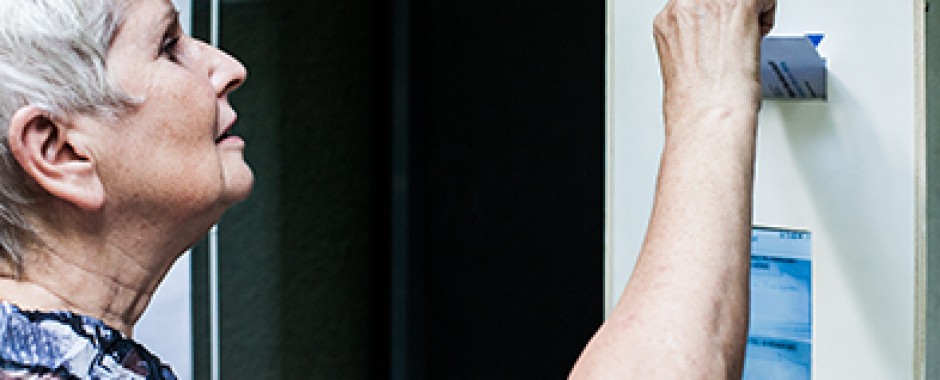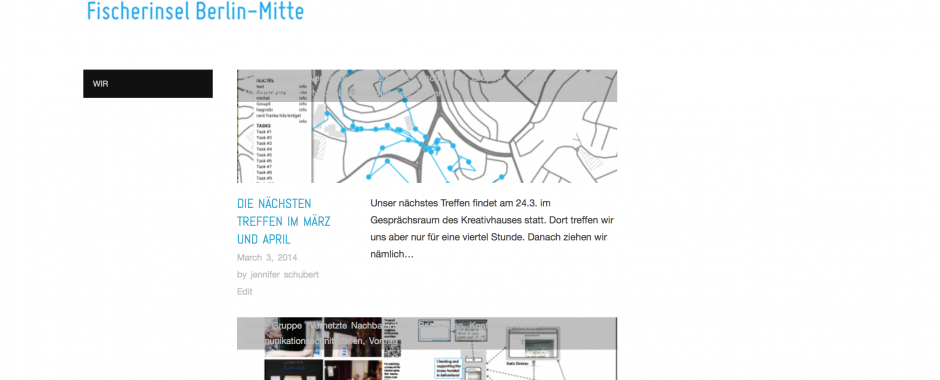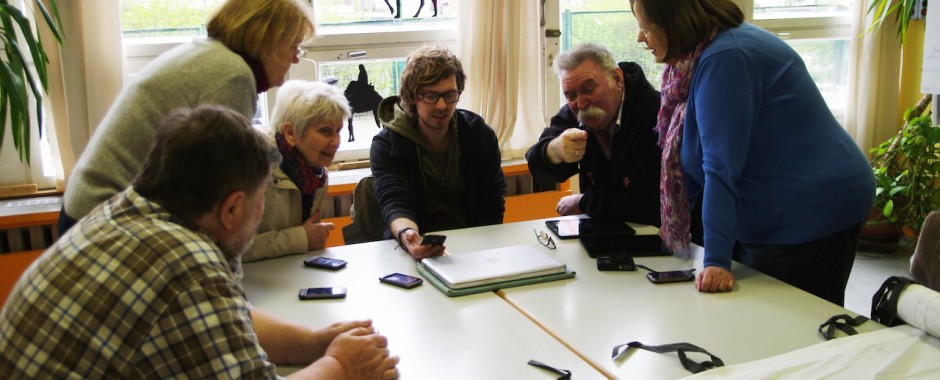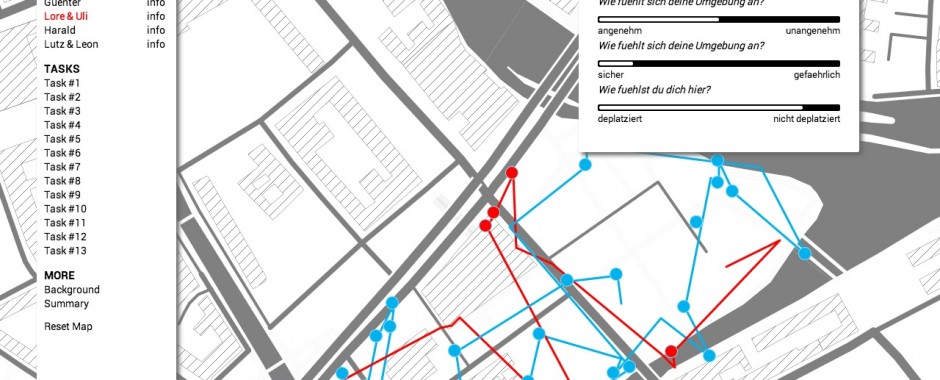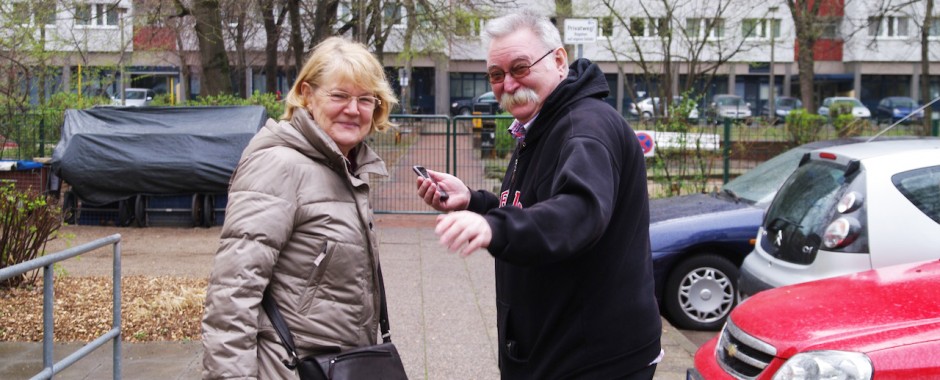The project »Neighborhood Labs« aims at both researching and supporting socio-material infrastructures on which urban communities can exist and operate on.
Our team develops tools, formats and processes in order to facilitate the building of Publics (Dewey) around issues, interests and problems that are of a wider relevance to a neighborhood. We argue that through collectively working for, around or against those issues, novel and sustainable communities are likely to emerge.
The nucleus of this project is the Berlin neighborhood Fischerinsel, located in the very center of Berlin and characterized by high-rise apartment buildings. Historically a prestigious domestic area for GDR functionaries and the like, it has recently changed into an interesting mix of longtime inhabitants, elderly citizens, students and young families which inevitably creates some tension.
People know that things need to be done, but since the Fischerinsel is part of the Mitte-District of Berlin, it is not an official “problem quarter” that would classify it for quite some money streams and public attention, the lack of any quarter-management or municipal involvement creates a sort of vacuum, which calls for individuals to actively engage in questions regarding their neighborhood.
This project questions whether design can help foster this engagement, support the few active citizens and activate more passive ones through breaking down communicative boundaries and delivering tools and methodologies.
We do that through active engagement in and close collaboration with inhabitants of the neighborhood and through the participatory development of technology. This technology both aims at supporting the work being done in the community as well as at scaling the developed strategies in order to be useful for other communities around the globe.
One central aspect hereby is the development of bridge-technologies between the Analog and the Digital, since the existing tools for political participation (e-participation, liquid democracy, etc.) all lack the active inclusion of digital strangers of any kind.
These access points allow part-taking in a new technology without having to learn how to navigate in the web, without having to have a computer or access to broadband internet.
As of now the project is work-in-progress. If you would like to learn more about it, please email us or have a look here (Team Website “Vernetzte Nachbarschaft” in German)
